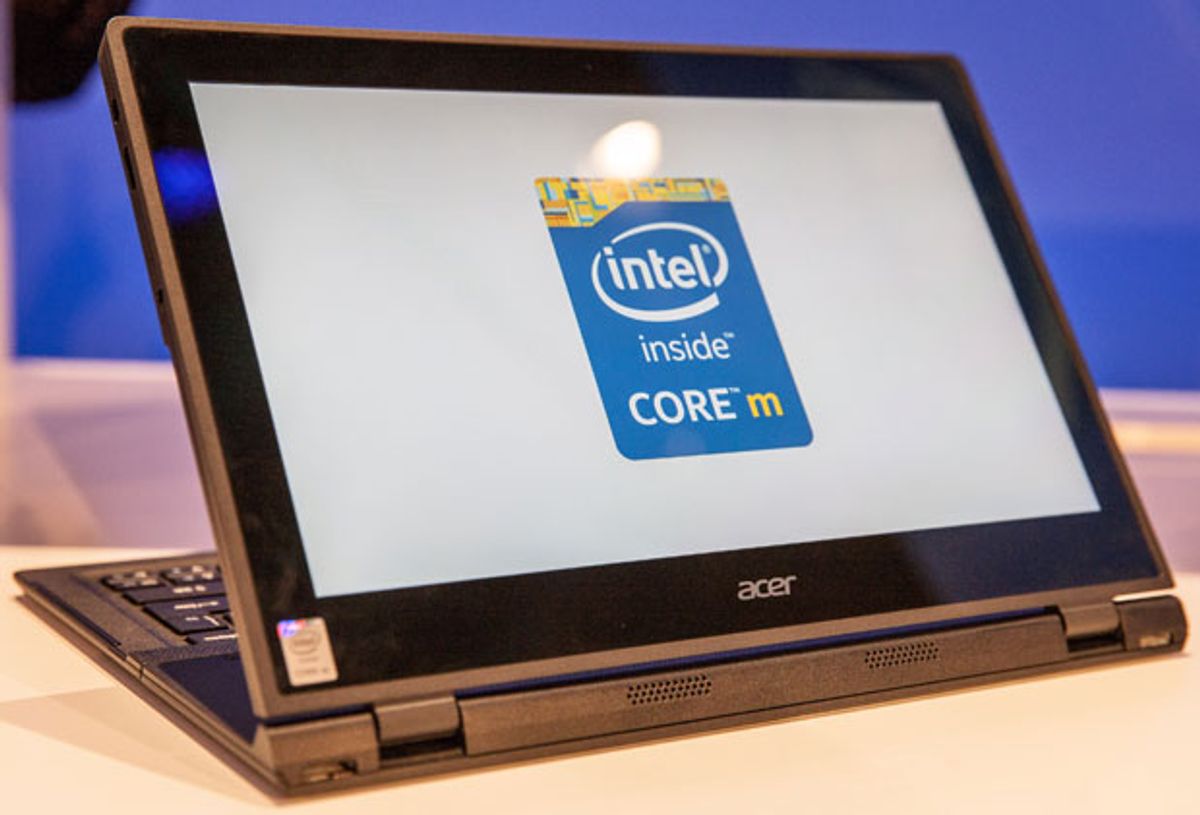PC and laptop sales may be recovering, but tablets are still what's hot. So many hardware developers have tried, unsuccessfully, to generate interest in tablet-laptop hybrids that combine the best of both worlds. Consumers have been turned off by high prices, low battery life, noise, and bulk. Intel's hoping to solve those problems with the release of the Core M processor.
Codenamed Broadwell, the processor is the latest thrust in Intel's effort to develop lower-power processors, and the first to be implemented on the company's 14-nanometer FinFET manufacturing process.
(Of course, it's hard to say for sure what "14-nanometers" really means these days.)
Intel introduced the Core M last week at IFA, an international trade show in Berlin for consumer electronics and home appliances, specifically intending it for 2-in-1 tablet-laptop convertibles. The new chip requires less than half the power of prior chips in the same class. According to the company, the Core M can perform 50 precent faster while lasting 1.7 hours longer on a battery charge than its predecessors.
"Core M is the first of a new product family designed to deliver the promise of one of the world's thinnest laptops and highest performance tablets in a single 2-in-1 device," says Kirk Skaugen, senior vice president and general manager of personal computing at Intel.
Navin Shenoy, a vice president in Intel's PC client group, tells the Wall Street Journal that the previous Intel processors drew so much power that system designers were essentially forced to include cooling fans—something most consumers find intensely disruptive. As a result, most tablets use chips designed by Intel competitor ARM Holdings, which have no need for fans. “We had this threshold we were envisioning, lusting after,” says Shenoy. The Core M, the first Intel processor that can be used in fanless machines less than 9 millimeters thick, marks Intel's crossing of that threshold.
Several technology vendors have already announced plans to integrate the Core M in a new wave of fanless convertible machines that are meant to be as portable and easy to use as a tablet, while retaining the hardware capabilities of a laptop. Acer, ASUS, Dell, Hewlett-Packard, and Lenovo have all announced forthcoming units (to be released in time for the holiday season) that take advantage of the Core M. “The industry has been talking a lot about all of these thin and light devices,” says Patrick Moorhead, an analyst with Moor Insights & Strategy who also spoke with the Wall Street Journal. “Core M actually delivers them."



